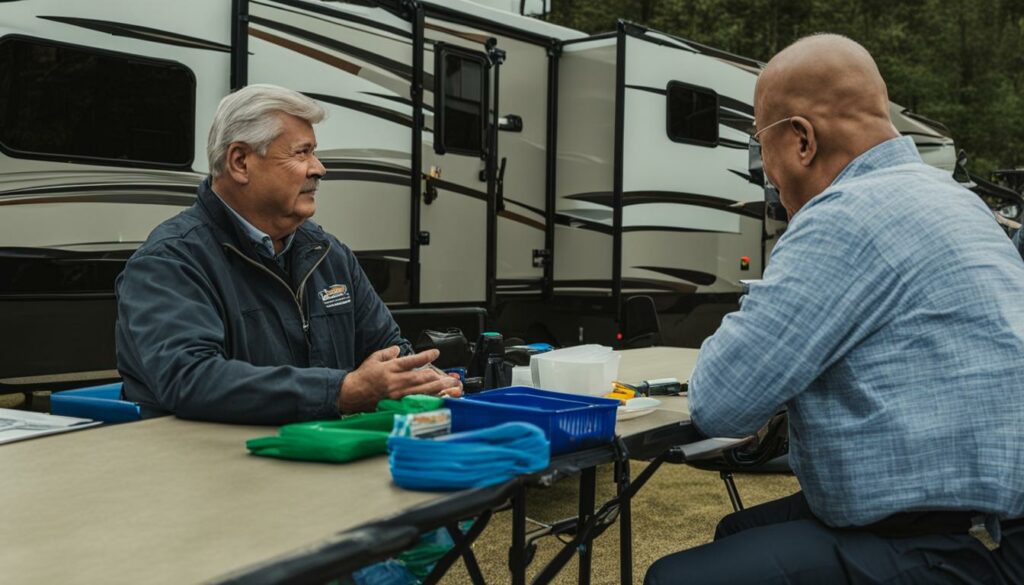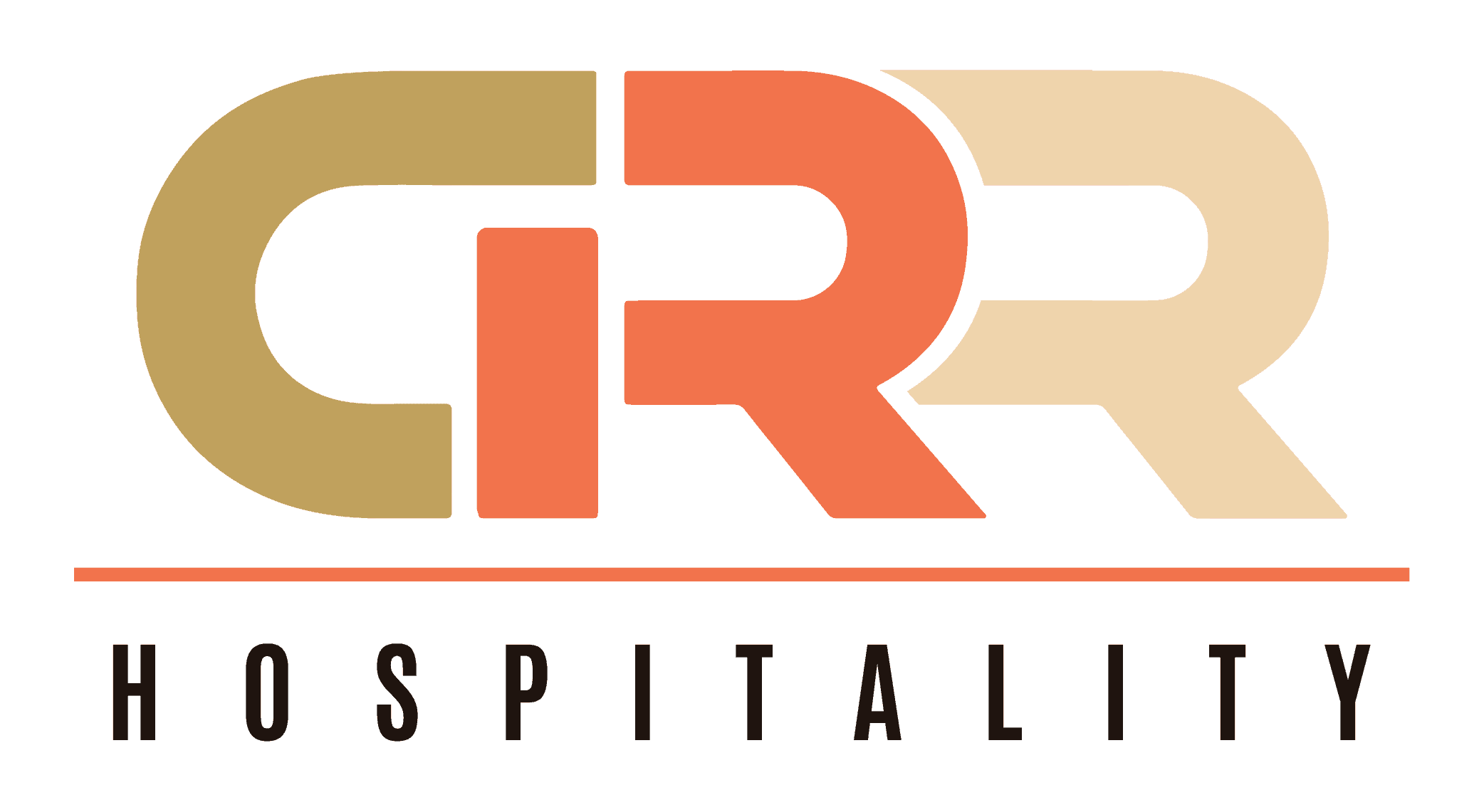As an RV park owner, securing reliable suppliers is critical to maintaining excellent guest experience and ensuring the smooth running of your operation. Effective supplier negotiation strategies will enable RV park owners to secure better terms, build stronger partnerships, and ultimately, contribute to the success of their campground.
This section will explore the different techniques and strategies for effective supplier negotiations specifically tailored for RV parks. From aligning goals and needs with suppliers to conducting thorough research, we will provide valuable insights to strengthen your negotiation skills, and enable you to secure the best possible supplier agreements for your RV park.
Key Takeaways
- Effective supplier negotiation is crucial for the success of RV parks.
- By aligning goals and conducting thorough research, RV park owners can secure the best possible supplier agreements.
- Strong supplier relationships are vital to maintaining excellent guest experience and smooth operations.
- Negotiation tactics such as leveraging bargaining power, handling objections, and compromise can lead to mutually beneficial agreements.
- Securing and regularly monitoring supplier agreements can ensure compliance and long-term profitability.
Understanding the Importance of Supplier Relationship Management
Supplier relationship management is essential for RV park owners to ensure a smooth and profitable partnership. By connecting with suppliers and continuously improving agreements, owners can achieve long-term success.
Effective supplier relationship management encompasses multiple areas, such as communication, contract management, and trust-building. Communicating regularly and openly with suppliers helps build trust and avoid misunderstandings. A clear understanding of both parties’ expectations through carefully crafted contracts prevents disputes and promotes future collaboration.
One way to improve supplier agreements is by developing a mutually beneficial partnership. This approach involves creating agreements that benefit both parties involved, rather than taking a one-sided approach. The result is a win-win relationship, with both parties invested in the success of the agreement.
In addition to creating beneficial agreements, another critical aspect of supplier relationship management is regular monitoring to ensure compliance and identify areas for improvement. This can involve taking proactive measures, such as providing feedback and implementing monitoring systems to measure supplier performance and maintain the quality of delivery.
By prioritizing effective supplier relationship management and continuously improving agreements, RV park owners can build strong and positive relationships with their suppliers, contributing to their campground’s success.
Aligning Your Goals and Needs with RV Park Suppliers

When negotiating with RV park suppliers, the key to success lies in finding common ground. Aligning your goals and needs with those of your suppliers will allow both parties to reach mutually beneficial agreements.
Effective negotiation techniques for RV park owners include being clear about your priorities and desired outcomes. This will enable you to articulate your needs and requirements, while also understanding the supplier’s perspective. By keeping an open mind and actively listening to your supplier, you can find areas of overlap and identify opportunities for collaboration.
One of the most important strategies for negotiating deals with RV park suppliers is to build and maintain strong relationships. Communication is key in building these relationships, so it is important to establish open and honest lines of dialogue from the outset.
Another effective technique is to explore trade-offs that can benefit both parties. By offering something of value to your supplier in exchange for concessions on their part, you can achieve your desired outcomes while also meeting the needs of the supplier.
Ultimately, success in negotiating with RV park suppliers depends on a combination of effective communication, mutual understanding, and a willingness to collaborate. By aligning your goals and needs with those of your suppliers, you can create partnerships that will benefit your RV park in the long term.
Conducting Thorough Supplier Research and Market Analysis

Before negotiating with RV park suppliers, it is crucial to conduct thorough research and gather essential market analysis. This process ensures that you have a complete understanding of suppliers within the RV park market and can develop effective negotiation strategies that align with your goals.
To conduct thorough research, you should gather data on supplier performance, pricing, and terms. This data can be obtained through industry reports, online research, and interviews with other RV park owners. Additionally, it is important to study the RV park market, including trends, demand, and the competitive landscape.
When conducting research, pay close attention to potential risks and opportunities for negotiation. For example, a supplier with a history of missed delivery deadlines might present a negotiation opportunity, while a supplier with a high level of customer satisfaction might require a more strategic approach.
Here are some negotiation tips to help you when dealing with RV park suppliers:
- Identify what is important: Understand what is most important to you as a buyer and what is key for the supplier to maintain their business.
- Be prepared to walk away: Have a clear sense of what you are willing to accept, and be prepared to walk away from the negotiation if you cannot reach a mutually beneficial agreement.
- Remain professional: Effective negotiation is about communication and compromise, so always remain professional and respectful during the conversation.
Conducting research and negotiating with RV park suppliers can be challenging, but with the right strategies and techniques, you can secure satisfactory agreements. In the next section, we will discuss how aligning your goals and needs with RV park suppliers can improve your negotiation outcomes.
Preparing for Supplier Negotiations

Effective preparation is crucial for successful supplier negotiations in the context of RV parks. RV park owners seeking to negotiate better supplier agreements must follow specific steps to ensure a smooth and productive process. Below are some essential tips to prepare for your next RV park supplier negotiation:
- Set clear goals: Before entering negotiations, it’s essential to have a clear idea of what you want to achieve. Set specific, measurable goals for the negotiation process to help you stay focused and on track.
- Define your position: RV park owners must have a clear understanding of their position before entering into negotiations. Develop a thorough and comprehensive understanding of your campground’s needs, demands, and preferences.
- Anticipate challenges: Anticipating potential challenges and objections is vital for effective supplier negotiations. Understanding the market and supplier, your campground will help you predict potential hurdles and plan ways to overcome them.
- Research: Conduct thorough research on your RV park supplier, including their history, strengths, weaknesses, and market prices. This knowledge will help you negotiate from a position of strength and develop mutually beneficial agreements.
- Improve supplier agreements: Utilize effective negotiation techniques to improve supplier agreements. By reviewing the supplier agreement, you can identify areas for improvement and create mutually beneficial contracts.
Preparing for supplier negotiations takes time and effort, but it’s worth it. With proper preparation, RV park owners can improve supplier relationships, secure better terms, and ultimately contribute to the success of their campground.
Building Rapport and Maintaining Good Communication

Effective negotiation strategies for RV park suppliers require building rapport and maintaining strong communication with them. Here are some proven tips and techniques to establish amiable relationships:
- Listen actively: Effective communication begins with active listening. Listen carefully to the supplier’s needs and requirements so that you can tailor your request accordingly.
- Ask questions: Asking relevant and thought-provoking questions will demonstrate your interest in the supplier’s business and help build a collection of valuable information about their goals and challenges.
- Show respect: Building respectful relationships is the foundation of supplier negotiations. Ensure that you treat the supplier’s needs, time, and input with respect and honesty.
- Be clear and concise: Clearly articulating your goals and objectives will create an understanding with the supplier and show that you have a well thought-out negotiation plan that meets their needs as well.
- Keep communication open and continuous: Regular follow-up calls, emails or visits help maintain open lines of communication that can set the stage for favorable negotiations in the future.
Case Study: The Power of Open Communication
To demonstrate the crucial role of open communication in effective negotiation strategies for RV park suppliers, consider the example of Green Valley RV Park and its supplier ABC Beverages. After several disappointing experiences in the past, Green Valley RV Park decided to explore ways to improve their supplier relationship with ABC Beverages.
“We knew we had to establish better communication with ABC Beverages to avoid misunderstandings and disappointments that we had experienced in the past” says Jane, the owner of Green Valley RV Park.
After careful analysis, the RV park management scheduled a meeting with the supplier, which was focused on finding ways to improve communication and build a better partnership. They discovered some gaps in their communication process which were causing the missed deliveries and other issues. After the meeting, communication between the RV park and its supplier improved significantly, and they were able to negotiate better pricing and delivery terms. The supplier also worked more closely with the park management to ensure that deliveries were on time, stocked and sometimes even offered additional discounts as a sign of renewed mutual trust.
The case study demonstrates how maintaining open and proactive communication, and taking steps to establish common goals and expectations, can lead to more favorable supplier contracts and better long-term relationships.
Negotiation Tactics and Techniques for RV Park Owners
Securing favorable supplier agreements is paramount for the financial success of an RV park. This section provides actionable tips for RV park owners to negotiate better supplier contracts and improve their relationships with vendors
1. Leverage your bargaining power
Before entering supplier negotiations, RV park owners should research their supplier market, identify competitors, and determine their bargaining power. A comprehensive knowledge of the market can help negotiations achieve better outcomes.
2. Handle objections the right way
Effective negotiation requires handling objections well. Addressing supplier pushback using data and logic can help overcome disagreements and achieve better compromise.
3. Find mutually-beneficial solutions
During negotiations, creating solutions that benefit all parties involved can help reach a successful outcome. Identifying and considering the supplier’s needs can pave the way for a mutually-beneficial agreement.
4. Be creative in your solutions
When negotiating, sometimes what’s “fair” is not equal. RV park owners should use creative problem-solving to meet suppliers’ requests while still benefitting the campground. Offering trade-offs or establishing a performance-based pay scale can help create a successful solution.
“The fishing isn’t good unless the process is good” – Alfred P. Sloan, Jr.
Effective negotiation techniques play a crucial role in securing supplier contracts that contribute to the success of RV parks. By leveraging bargaining power, handling objections, finding mutually-beneficial solutions, and thinking creatively, campground owners can create positive supplier relationships and achieve long-term financial success.
The Art of Compromise in Supplier Negotiations
In any supplier negotiation, it’s essential to remember that compromise is often necessary. While it may seem like a defeat, compromising can lead to a win-win outcome for both parties. In this section, we’ll explore the strategies you can employ as an RV park owner to achieve your goals while maintaining positive relationships with your suppliers.
One of the first steps in the art of compromise is to identify your priorities. Determine what aspects of the supplier agreement are most critical to your RV park’s success and focus on those during negotiations. It’s also essential to understand your supplier’s needs and priorities so that you can craft an agreement that benefits both parties.
Tip: Before entering negotiations, review your supplier’s contract thoroughly, paying close attention to areas where there may be flexibility. This preparation will allow you to negotiate from the most advantageous position possible.
Another effective strategy is to explore creative solutions to problems. Instead of the typical win-lose mindset, look for ways to solve both parties’ challenges. By working together to find a mutually beneficial outcome, both your RV park and your supplier can derive value from your partnership.
Examples of Compromise Strategies:
| RV Park Owner’s Goals | Supplier’s Goals | Compromise Strategies |
|---|---|---|
| Lower Cost of Supplies | Maximize Profit from RV Park | Explore a long-term contract to ensure stability for the supplier and lower prices for the RV park owner. |
| Flexible Delivery Schedule | JIT (Just-in-time) Rapid Delivery Process | Agree to a maximum lead time for deliveries and communicate regularly to avoid disruptions to operations. |
| Exclusive Supplier Agreement | Increase Market Share | Consider extending exclusive supplier rights to new locations or offer incentives for increased sales volume. |
Remember, compromising doesn’t mean giving in or sacrificing your RV park’s success. Instead, it’s a powerful tool for finding common ground and securing an agreement that benefits both parties. By employing a creative and collaborative approach, RV park owners can achieve their goals while maintaining strong relationships with suppliers.
Securing and Monitoring Supplier Agreements
Successfully negotiating supplier agreements is just the first step towards building a strong relationship and ensuring a steady supply of goods and services for your RV park. It is equally important to secure these agreements and monitor compliance to safeguard your business interests. This involves setting up a proper system for tracking performance and addressing any issues that may arise. Below are some best practices for securing and monitoring supplier agreements:
Establish clear provisions
The supplier agreement must be clear and comprehensive to avoid misunderstandings and disagreements. It should outline all the critical terms, including the scope of services/products, pricing, delivery schedule, warranties, and indemnification provisions. The supplier also needs to understand the obligations and responsibilities, as well as the consequences of any non-compliance.
Ensure legal compliance
Your supplier agreements should adhere to all relevant laws and regulations, including environmental, labor, and licensing requirements. You should stay updated on any changes in regulations and amend the agreements accordingly. Additionally, it’s crucial to ensure that your suppliers comply with the provisions and have the necessary certifications or permits to operate.
Implement monitoring systems
To ensure smooth operations and timely deliveries, you should set up a monitoring system that tracks the performance of each supplier. This can involve assigning specific metrics for each product/service, such as quality, timeliness, and accuracy, and assigning a score for each category. This system will enable you to identify any areas that need improvement, as well as any red flags that may require your attention.
Communicate regularly with suppliers
To maintain a positive and productive relationship with your RV park suppliers, you should keep them informed of any changes in your operations or expectations. Regular communication can also help you anticipate any challenges or opportunities that may arise. Make sure to establish open communication channels and respond promptly to any inquiries, feedback, or complaints.
Review and update agreements regularly
Your RV park’s operational needs and priorities may change over time, and so may your supplier agreements. Therefore, it’s essential to review the agreements regularly and update them as necessary. This can involve negotiating new terms or terminating agreements that no longer meet your needs. It will also enable you to take advantage of new technologies or cost-saving measures that can boost your RV park’s competitiveness and profitability.
By following these best practices, you can establish a robust system for securing and monitoring your supplier agreements, ensuring a steady and reliable supply chain for your RV park’s success.
Conclusion
Effective supplier negotiation is a critical component for RV park owners to achieve success. By implementing the strategies and techniques outlined in this article, campground owners can strengthen their partnerships with suppliers, secure better terms and pricing, and ultimately improve their bottom line. By conducting thorough research and analysis, aligning goals and needs, building rapport, and employing negotiation tactics, RV park owners can achieve mutually beneficial agreements with their suppliers. Ongoing supplier relationship management and monitoring can help ensure compliance and maintain strong partnerships. By mastering supplier negotiation techniques, RV park owners can position themselves for long-term profitability and success.
So, if you’re a campground owner looking to enhance your supplier negotiation skills, take the time to implement these strategies and techniques into your negotiations. By doing so, you’ll be able to secure better deals with your suppliers and ultimately contribute to the growth and success of your RV park. Remember, consistent and effective supplier negotiation is crucial for the long-term success of your business.
Thank you for reading this guide on Supplier Negotiation for RV Parks.
FAQ
What are some effective negotiation strategies for RV park owners when dealing with suppliers?
When negotiating with RV park suppliers, it is important to prepare thoroughly, define your goals and position, and conduct market analysis. Building rapport and maintaining good communication with suppliers can also contribute to successful negotiations.
Why is supplier relationship management important for RV park owners?
Supplier relationship management is crucial for RV park owners as it helps maintain strong partnerships and ensures mutually beneficial agreements. Improving supplier agreements can lead to better terms and increased success for your campground.
How can RV park owners align their goals and needs with their suppliers?
Aligning goals and needs with RV park suppliers involves effective negotiation techniques, finding common ground, and reaching mutually beneficial agreements. Negotiating better deals with suppliers is also an essential aspect of this alignment.
What role does thorough supplier research and market analysis play in supplier negotiations for RV parks?
Conducting thorough research and market analysis is essential before entering into supplier negotiations for RV parks. This research provides valuable information about suppliers and the RV park market, allowing owners to negotiate from a position of knowledge and strength.
How can RV park owners best prepare for supplier negotiations?
Proper preparation for supplier negotiations involves setting goals, defining your position, anticipating challenges, and improving supplier agreements. These steps will help you negotiate effectively and secure the best outcomes for your campground.
How can RV park owners build rapport and maintain good communication with their suppliers during negotiations?
Building rapport and maintaining good communication with suppliers is vital during negotiations. Establishing strong relationships, fostering open communication, and demonstrating trust and respect can contribute to successful outcomes and long-term partnerships.
What are some negotiation tactics and techniques that RV park owners can use when dealing with suppliers?
RV park owners can leverage their bargaining power, handle objections effectively, and find creative solutions through specific negotiation tactics and techniques. These strategies will help secure better supplier agreements and optimize outcomes for campground owners.
How important is compromise in supplier negotiations for RV park owners?
Compromise is often necessary in supplier negotiations. RV park owners should be prepared to navigate the give-and-take nature of negotiations, find win-win solutions, and maintain positive relationships with suppliers to achieve mutually beneficial outcomes.
What should RV park owners do to secure and monitor supplier agreements?
After successful negotiations, it is crucial to secure and monitor supplier agreements to ensure compliance and optimal outcomes. Implementing best practices for securing agreements and establishing monitoring systems will help maintain strong supplier relationships and track performance.
Why is mastering supplier negotiation techniques important for RV park owners?
Mastering supplier negotiation techniques is vital for the success of RV parks. By implementing effective negotiation strategies, building strong relationships with suppliers, and continuously improving supplier agreements, campground owners can enhance their operations and achieve long-term profitability.





